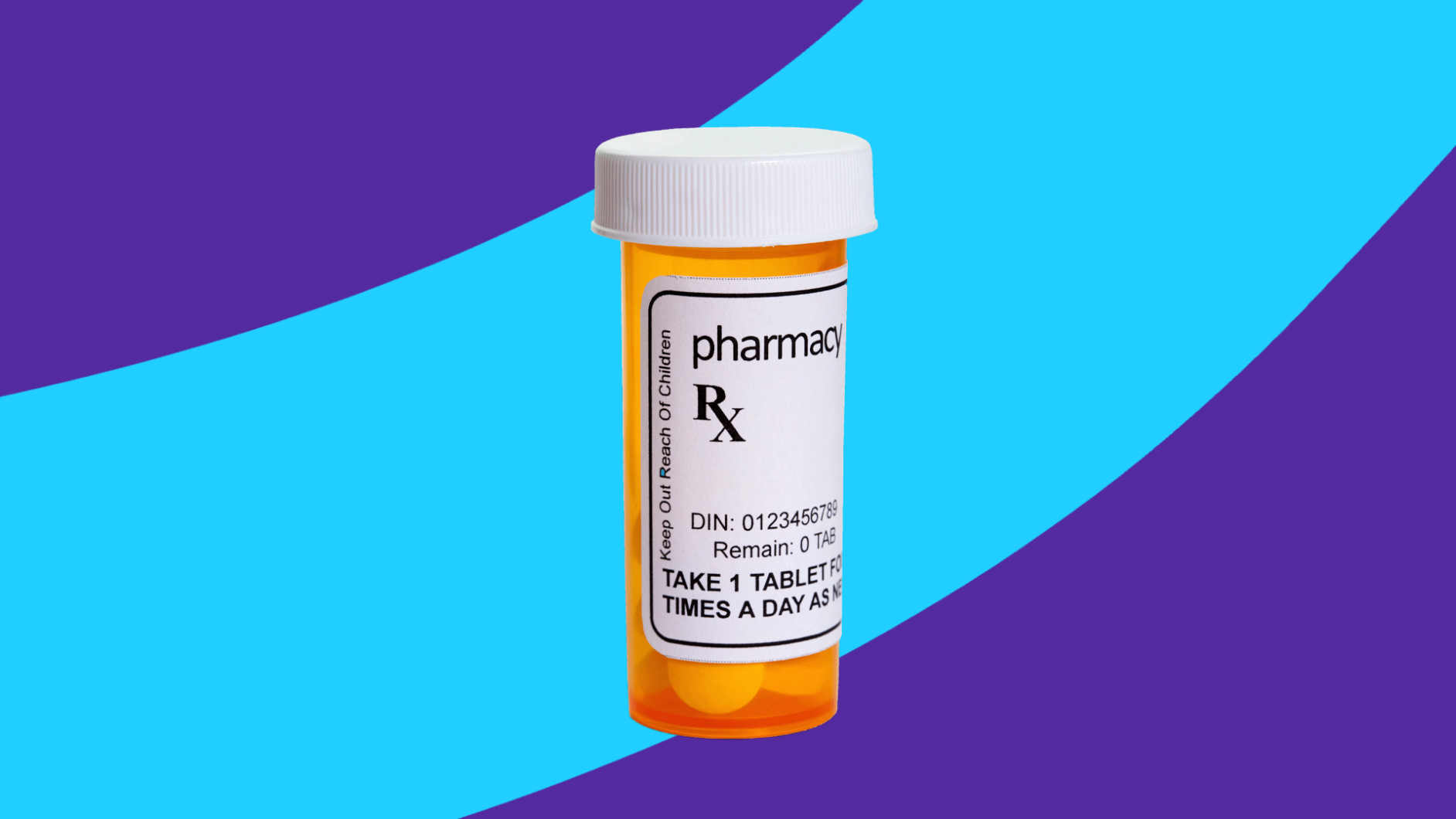Key takeaways
Synthroid (levothyroxine) is a brand-name drug prescribed for hypothyroidism (underactive thyroid), which helps to normalize the body’s thyroid hormone levels.
Many Medicare plans cover Synthroid, although the out-of-pocket costs can vary by plan.
Without insurance or Medicare coverage, brand-name Synthroid can cost up to around $80 for a 30-day supply, but the price depends on which pharmacy you use.
SingleCare coupons, generic alternatives, and government-sponsored assistance can help save on the cost of Synthroid.
Hypothyroidism, or underactive thyroid, is an underproduction of thyroid hormones (thyroxine) that can slow the metabolism and a wide range of bodily functions. Synthroid (levothyroxine) is a brand-name prescription drug that replaces thyroxine, restoring balance to hormonal levels in children or adults.
The cost of Synthroid can vary based on several factors, most prominently insurance coverage. Many insurance and Medicare Part D plans cover it, but it depends on the specific plan and why it’s prescribed.
How much does Synthroid cost?
As of the time of publication, the average retail price of brand-name Synthroid is $80 for 30, 50 microgram (mcg) tablets. But that price can vary based on insurance coverage, plus other factors, like dosage or the specific pharmacy that provides it. Pharmacy chains and independent pharmacies purchase medications from wholesalers, and the price they pay—plus their own markups—determines the price for patients. Plus, each location has different overhead and operating costs, which can also influence prices. The result is that prices can vary significantly between them.
Is there a generic version of Synthroid?
Yes, and most pharmacies substitute Synthroid for generic levothyroxine sodium, as allowed by state law (unless the patient or prescriber specifically requests brand). This would likely lower the price, since generics almost always cost less than brand-name drugs. Although both Synthroid and levothyroxine sodium have the same active ingredient and studies have demonstrated that they achieve similar outcomes, other studies have shown that Synthroid is more effective.
“The Food and Drug Administration (FDA) requires that manufacturers of generic medications perform bioequivalence studies to show that their drugs are as effective as available brand-name versions,” says Tanya Feke, MD, a health policy analyst. “This particular drug has a narrow therapeutic window, and that complicates things. If the dose is too high or too low, people can develop worsening symptoms. That’s why anyone on these medications requires routine laboratory follow-up and titration of the medication dose to reach the desired effect.”
Sazan Sylejmani, Pharm.D., adds: “It is possible to switch between generic and brand-name levothyroxine, but it should be done under the guidance of a healthcare provider to ensure stability in thyroid hormone levels.” Talk to your healthcare provider and pharmacist to ensure you’re getting the best version and dosage of levothyroxine sodium for your condition.
Does Medicare cover Synthroid?
Medicare has different parts, and Part D covers most prescription drugs. Part D plans are standalone plans that beneficiaries can add to their Medicare Part A or Part B. Medicare Advantage plans (Part C) often include drug coverage, but if not, you’d have to change the way you receive your Medicare coverage in order to include drug coverage.
AbbVie says that 80% of all patients with Medicare Part D or private health plans will get their medication covered. “There are nine brand-name versions and 16 generic versions of the drug, and altogether Medicare Part D paid $1.07 billion for these medications in 2022,” Dr. Feke says. “Approximately $671.1 million of that amount covered generic medications for 8.3 million beneficiaries. Another $353.2 million was paid for brand-name Synthroid for 1.1 million beneficiaries.”
Although some Medicare Part D plans may cover Synthroid, no questions asked, other plans “may require prior authorization for Synthroid, especially if a patient is switching from a generic version or if there are specific dosage requirements,” Dr. Sylejmani says. “This process typically involves providing medical justification for the use of Synthroid over a generic alternative.”
How much does Synthroid cost on Medicare?
The cost of Synthroid on Medicare depends on the specific Medicare prescription drug plan since each one has different copay, coinsurance, and deductibles. But typically, Medicare beneficiaries pay somewhere between $6 and $44 for their Synthroid copays, although costs still might fall outside that range. Check your plan’s formulary for specific cost information. Other factors, like whether you have Medicare Extra Help and what phase of drug coverage you are in, will also potentially impact your costs.
How to save on Synthroid
For many people, insurance and Medicare are the best options for saving on Synthroid, but they’re not the only ways to save. Here are a few more routes you can take to lower Synthroid prices:
- Use a SingleCare coupon. SingleCare works directly with pharmacies to get discounts on thousands of medications, including Synthroid. Instead of paying the nearly $80 per month it costs on average, SingleCare coupons can drop that price below $50. All you have to do is present your free SingleCare card at a participating pharmacy. Just know you can’t use it on top of insurance or Medicare coverage.
- Consider generic alternatives. As we mentioned, there are conflicting studies on whether generic levothyroxine can match Synthroid’s effectiveness. However, it still works well for many people, and generic drugs are typically less expensive. With a SingleCare coupon, 30 tablets of generic levothyroxine can cost less than $4, depending on the pharmacy and geographic location.
“As a family physician, I prefer prescribing generic versions of the medication whenever possible to decrease cost,” Dr. Feke says. “However, if a patient had difficulty reaching therapeutic levels, I would consider a brand-name product to see if this could help.”
There are also other medications for hypothyroidism, like Armour Thyroid and Cytomel. These brand-name drugs are often around the same price as Synthroid, but your pharmacy might have them for cheaper, or your insurance might provide more coverage.
- Ask for a 90-day prescription. “A 90-day prescription for Synthroid can be more convenient for patients, reducing the frequency of pharmacy visits,” Dr. Sylejmani says. “It may also be more cost-effective, as some insurance plans offer better pricing for extended supplies.” Certain studies have confirmed that patients who got 90-day supplies had greater savings on average—plus greater treatment adherence—than those who got 30-day supplies.
- Apply for Medicare Extra Help. This low-income federal subsidy provides additional assistance for Part D beneficiaries. It can help pay premiums, deductibles, coinsurance, and other costs, and anyone who has Medicaid (and certain other programs like supplemental security income or a Medicare Savings Program) is enrolled automatically.
Sources
- Hypothyroidism, MedlinePlus
- Generic competition and drug prices: New evidence linking greater generic competition and lower generic drug prices, Food & Drug Administration (2019)
- Comparative effectiveness of generic vs brand-name levothyroxine in achieving normal thyrotropin levels, JAMA Network Open (2020)
- Comparative effectiveness of persistent use of a name-brand levothyroxine (Synthroid) vs. persistent use of generic levothyroxine on TSH goal achievement: A retrospective study among patients with hypothyroidism in a managed care setting, Advances in Therapy (2021)
- Understanding Medicare Advantage plans, Centers for Medicare & Medicaid Services
- Medicare Part D spending by drug, Centers for Medicare & Medicaid Services (2022)
- Medication days’ supply, adherence, wastage, and cost among chronic patients in Medicaid, Medicare & Medicaid Research Review (2012)
- Help with drug costs, Centers for Medicare & Medicaid Services











